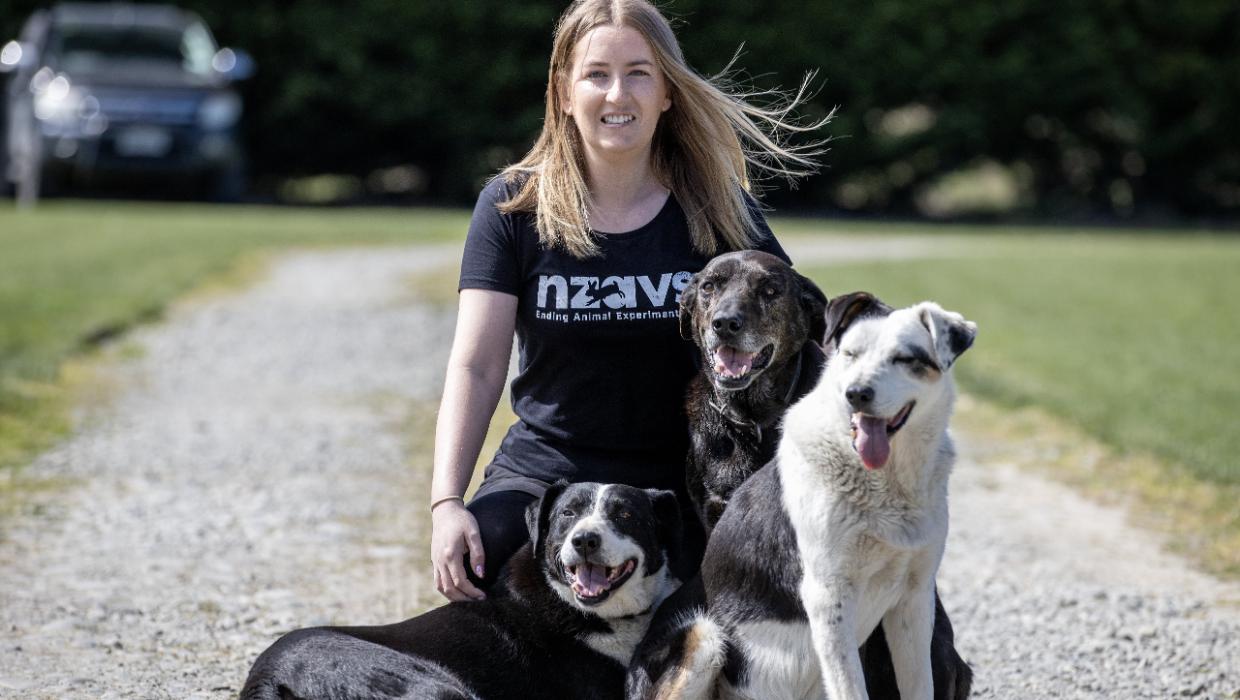Science
Anti-Vivisection Society Funds $50K Grant for Animal Testing Alternatives

A significant initiative aimed at reducing reliance on animal testing has been launched by the New Zealand Anti-Vivisection Society (NZAVS), which has established a research grant worth $50,000. This funding seeks to encourage the development of alternative methods to animal testing, with the ultimate goal of eliminating the use of animals in research entirely.
Researchers have welcomed this grant, expressing a shared interest in decreasing the number of animals used in scientific studies. Yet, they emphasize the ongoing necessity of animal research for advancements in medical and environmental science. According to Jodi Salinsky, animal welfare officer at the University of Auckland, “Nobody wants to use animals for research. We do it because we believe that it is necessary to move forward research that is beneficial for humans, the animals, or the environment.”
Advancements in Research and Funding Challenges
The NZAVS grant aims to support one or two research groups in developing alternative methods to animal testing. Salinsky describes this initiative as a “positive and proactive way to work with the research community” to achieve mutual goals. With over two decades of experience as a veterinarian, Salinsky conducts research focused on improving the health and welfare of animals used in scientific settings. She noted that all research involving animals must receive approval from an animal ethics committee to ensure ethical treatment.
In New Zealand, there is no dedicated public funding specifically aimed at developing alternatives to animal testing or the principles of the 3Rs—replacement, reduction, and refinement—used by ethics committees to minimize animal harm. Salinsky acknowledged the significance of the NZAVS grant, particularly in the current challenging funding environment for research.
Jade Pengelly, executive officer of NZAVS, highlighted the technological advancements made over the past decade, which provide a promising foundation for alternatives to animal experimentation. Despite these advancements, statistics reveal that over 300,000 animals were still used in research in New Zealand in 2023, a slight decrease from 324,395 in 2000. Alarmingly, 45,344 animals were killed for their tissues for research, testing, or training purposes, while 81,443 died during or after experimentation.
Encouraging Innovation in Animal Research
The NZAVS grant aims to inspire innovation that could lead to a substantial reduction in the number of animals used in scientific research, with hopes that the number of animals harmed or killed could eventually reach zero. Preference for grant proposals will be given to those demonstrating long-term impacts, such as curriculum reforms or policies that phase out animal use permanently.
Michael Pankhurst, a senior lecturer and researcher at Otago University, expressed optimism about the potential impact of this funding. He believes the grant could support the development of alternative methods that others could adopt. In his lab, Pankhurst employs a combination of techniques, including animal studies, cell cultures, computer modeling, and human studies, to enhance research outcomes.
While the use of alternative methods is on the rise, challenges remain. Technologies such as organoids and organ-on-a-chip models are often costly, and limited research funding poses a significant barrier to widespread adoption. Pankhurst acknowledged that while alternative methods are increasing, there are still critical inquiries that require live animal experimentation. He stated, “I don’t see us completely replacing animal experiments within our lifetime. Without them, we’d be missing out on a lot of important discoveries.”
The application process for the NZAVS grant is currently open and will close in January, providing an opportunity for researchers to explore innovative approaches to reduce animal testing in New Zealand’s scientific landscape.
-

 World3 months ago
World3 months agoTest Your Knowledge: Take the Herald’s Afternoon Quiz Today
-

 Sports3 months ago
Sports3 months agoPM Faces Backlash from Fans During Netball Trophy Ceremony
-

 Lifestyle3 months ago
Lifestyle3 months agoDunedin Designers Win Top Award at Hokonui Fashion Event
-

 Sports3 months ago
Sports3 months agoLiam Lawson Launches New Era for Racing Bulls with Strong Start
-

 Lifestyle3 months ago
Lifestyle3 months agoDisney Fan Reveals Dress Code Tips for Park Visitors
-

 World3 months ago
World3 months agoCoalition Forms to Preserve Māori Wards in Hawke’s Bay
-

 Health3 months ago
Health3 months agoWalking Faster Offers Major Health Benefits for Older Adults
-

 Politics3 months ago
Politics3 months agoScots Rally with Humor and Music to Protest Trump’s Visit
-

 Top Stories3 months ago
Top Stories3 months agoUK and India Finalize Trade Deal to Boost Economic Ties
-

 World3 months ago
World3 months agoHuntly Begins Water Pipe Flushing to Resolve Brown Water Issue
-

 Entertainment3 months ago
Entertainment3 months agoExperience the Excitement of ‘Chief of War’ in Oʻahu
-

 Science3 months ago
Science3 months agoNew Interactive Map Reveals Wairarapa Valley’s Geological Secrets









